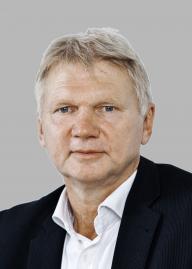
Jørgen Schlundt (JS) has a Degree of Veterinary Medicine and a PhD from the Royal Agricultural and Veterinary University, Copenhagen, Denmark, 1983. He has worked in Denmark 1983-99, including a 3-year period in Zimbabwe, focusing on the areas of risk assessment and decision support related to environment protection, food safety and food production (farm-to-table). In this period he participated in the standardization of microbiological and biotechnology risk assessment in Denmark and internationally in EU and OECD as well as in WHO/FAO expert meetings.
From 1999-2010 he worked at WHO HQ in Geneva as Director Department for Food Safety and Zoonoses. The work here focused on: the definition of risk analysis principles, creation of a new WHO Expert body for microbiological risk assessment (JEMRA), creation of the Adv. Group on Integrated Surveillance of Antimicrobial Resistance (AGISAR), initiation of the WHO global burden of foodborne disease initiative, creation of the International Food Safety Authorities Network (INFOSAN) as well as the roll-out of the WHO Five Keys to Safer Foods messages (now translated to more than 90 languages). In addition JS headed the WHO part of the Joint WHO/FAO Food Standards Programme, for which the active arm is Codex Alimentarius.
From 2010-15 he was Deputy Director, Director and Professor at the National Food Institute at the Technical University of Denmark. Here the work focused on promotion of science-based decision making at national, regional (EFSA-EU) and global level. During this period JS was a Member of the Advisory Forum for EFSA. From July 2015 JS is Professor Food Science and Technology at the Nanyang Technological University in Singapore, participating in building new initiatives in support of food security and safety. JS is presently Chair of the Global Microbial Identifier initiative. a promising new decision support development based on the potential for new use of whole-genome DNA-sequencing techniques (www.globalmicrobialidentifier.org). JS continues work on an international agenda in support of public health improvements, e.g. in clarifying the true disease burden from food-related chemical and microbiological hazards and in enabling the prevention of antimicrobial resistance from animal use.
